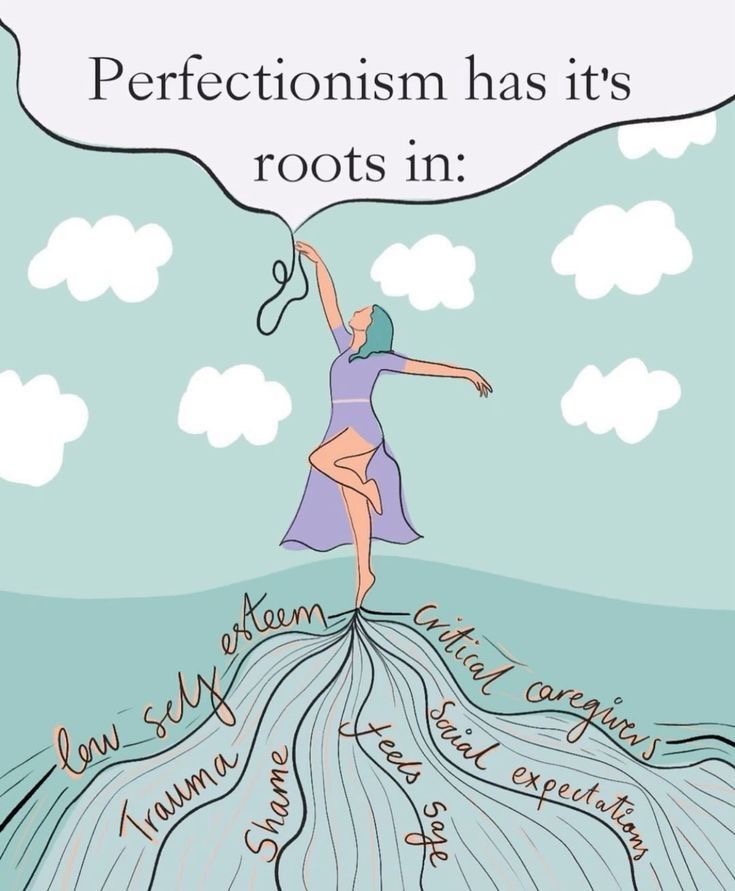Perfectionism Is Not a Personality — It’s a Survival Strategy

Perfectionism is often mistaken for a strength — a symbol of discipline, ambition, or even excellence. But beneath its polished surface lies something far more vulnerable: fear. Not just fear of failure or making mistakes, but a deeper, more painful fear — the fear of rejection. The fear of being unloved as you truly are.
For many, especially those who experience anxiety disorders, OCD, or trauma, perfectionism isn’t a preference — it’s a compulsion. It becomes a rigid mental script, driven by obsessive thoughts like “What if I’m not good enough?” or “If I mess this up, they’ll leave.” These intrusive thoughts don’t just linger; they loop. They convince you that perfection is the only way to feel safe, to stay connected, and to avoid abandonment.
Healing perfectionism begins with allowing yourself to feel what you’ve been taught to hide — especially your anger. Because when healing is conditional — when love is offered only in exchange for compliance — perfection becomes the currency of belonging. It becomes the mask you wear to avoid the pain of being unseen, unheard, and unsafe.
At the core of perfectionism is a soul that learned early on: “Being myself is not enough.” So it adapted. It became pleasing, flawless, invisible — anything but real. Because somewhere along the way, authenticity was punished, and perfection was praised.
This adaptation isn’t vanity. It’s survival. And for those with OCD or complex anxiety, these perfectionistic behaviors often manifest as mental compulsions — a constant, exhausting attempt to neutralize the fear of doing something wrong or being wrong.
When your emotional needs — to be comforted, listened to, protected — were unmet or dismissed, your nervous system learned a powerful lesson: Vulnerability is dangerous. Rejection, whether subtle or overt, became a source of trauma. To stay connected, you silenced your sadness, dulled your joy, and swallowed your anger. You chose perfection over presence, approval over authenticity.
But there is a cost.
Suppressing your emotions in order to stay in relationships that require performance over presence keeps your nervous system in a constant state of stress. When you cannot fully be yourself, your body knows it. It tightens. It contracts. It bristles beneath the weight of a smile that isn’t real.
Perfectionism isn’t just exhausting — it’s alienating. It isolates you from others and from yourself. It makes love feel like something to earn, not something to receive. And in doing so, it robs you of real connection.
The antidote to this isn’t more control or more reassurance — it’s anger.
Yes, anger — the emotion most perfectionists and anxious minds have been taught to fear and suppress. But anger, when felt safely and expressed consciously, is not destructive. It is clarifying. It is protective. It rebuilds the boundaries between self and sacrifice.
Anger says: “I matter.”
Perfectionism whispers: “I must earn it.”
Anger reminds you of your inherent worth. It tells the truth about what hurt and who crossed the line. It helps you reclaim the parts of yourself you buried to stay loved.
Perfectionism, particularly when tangled with obsessive-compulsive tendencies, often turns that anger inward. It shows up as rumination, self-criticism, and compulsive overthinking. It says: “If I just try harder, I’ll finally feel okay.” But the truth is: You were never meant to be flawless. You were meant to be whole.
Behind every perfectionist is a terrified inner child who believes rejection equals annihilation. To this child, being perfect feels safer than being real. But the work of healing is choosing wholeness over likability, truth over performance, self-worth over approval.
Healing perfectionism doesn’t mean rejecting the parts of you that strived to survive — even the anxious, obsessive parts. It means honoring them, and gently teaching them that love doesn’t have to be earned. That who you are, beneath the compulsion and the control, is already enough.
Let your anger speak. Let it draw new boundaries. Let it interrupt the intrusive thought that says you must be perfect to be loved.
Because healing begins the moment you stop needing to be liked more than you need to be yourself.



Comments (0)